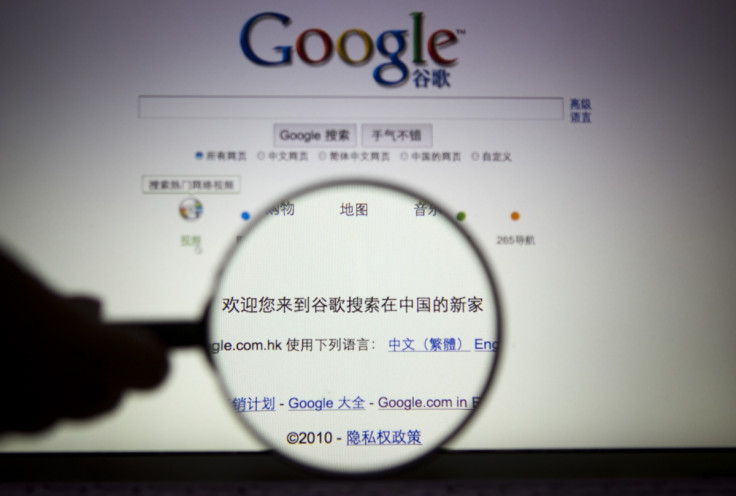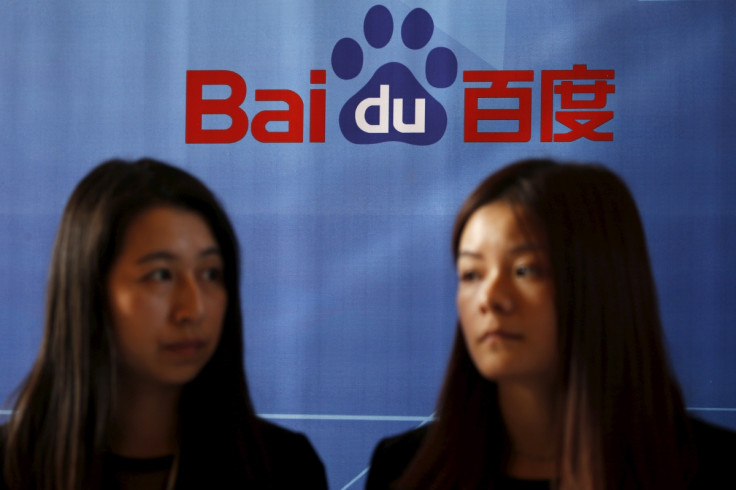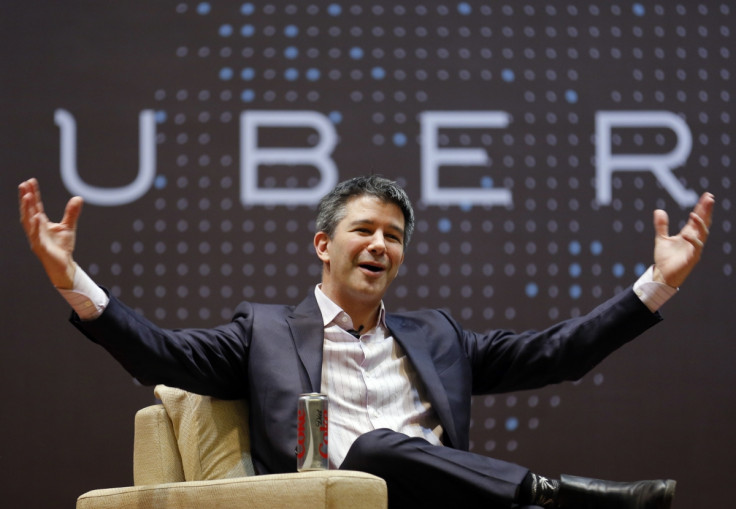Behind the Great Firewall, China is winning its war against internet freedom

When Google announced in 2010 that it would cease self-censorship of search results in China in response to a Chinese hacking attempt against itself and 20 other US tech companies, plenty thought it was a bluff. So big as to be synonymous with the internet itself, the world watched to see how China would respond – Beijing, in true stubborn fashion, called it.
Six years later and Google services are still blocked in China, along with Facebook, Twitter, Instagram, YouTube and some of the world's biggest news organisations, including the New York Times. Even on the search engines it allows, the Great Firewall (GFW) censors news stories that show China or its leaders in a bad light, as well as references to events such as the 1989 Tiananmen Square Massacre.
Most recently it shut down coverage of the Panama Papers when it emerged that a number of Chinese leaders and their families were using offshore tax havens, including the family of Chinese President Xi Jinping. Although many Chinese were able to access news through virtual private networks (VPNs), for weeks all searches related to the country Panama – leak or otherwise – were blocked.
China has always censored the internet, but in many ways the spat with Google, which reached its nadir in 2014 when all Google services were blocked, was a watershed moment. Until then the situation had been a tug of war between tech companies and the government, but after the blocking of Google, Beijing made clear that it was its way or the (super) highway.
In the two years since, internet freedom in China since has gone from bad to worse. In March 2016, the government began blocking the VPNs on which thousands rely to bypass the firewall. Overnight businesses that had spent years developing ways around the firewall had to start again from scratch.
The internet is the Achilles heal for most professionals and businesses in China - expats and locals alike.
As such, while in London professionals may sit around trading small talk about football or the weather, in Shanghai it is about VPNs – which ones work, new products on the market, internet speeds and wifi. It is not just expatriates looking to get on Facebook either, Chinese citizens are equally hungry for new VPN products – indeed, some of the best programmes have been written by locals.
"The internet is the Achilles heal for most professionals and businesses in China - expats and locals alike. Many Chinese who have international businesses and tend to travel a lot, have also complained [...] so in a funny way the Chinese government is shooting itself in the foot by stifling the efforts of its own enterprises that are now going global," said a Hisham Youssef, an architect who has lived and worked in Shanghai for five years.

An entire industry has been built around avoiding the firewall. New VPN providers see surges in business as the government shuts down stalwarts. During IBTimesUK's visit to Shanghai one of the most popular proxies, Astrill, was targeted by the government and a new provider – which will remain nameless, to avoid it facing a similar fate – sprung up in its place.
The case illustrated two important facts: Firstly, that the Chinese government is aware that thousands of internet users in China are using VPNs to bypass the great firewall, but secondly – and more importantly – that if Beijing wanted to stop the use the VPNs it could. Indeed, most home internet connections are designed to reject traffic originating from outside of China, blocking almost all VPNs, while wifi cafes such as Starbucks often require customers have a Chinese mobile number to log in.
The reason the government doesn't, some believe, is because it knows that international firms rely on VPNs to survive. Beijing is therefore walking a tightrope between allowing enough freedom so that international business can still do what it needs to do, while maintaining its tight grip over information that its citizens – and those of other nations who reside in China – can access.
The Chinese public is frustrated and angry. There are hints that some high level officials also believe that the media and Internet censors have overdone it.
"Each new day is worse than the last," said Charlie Smith, co-founder of GreatFire.org, which monitors Chinese internet freedom and promotes ways around the firewall. "It is rare that sites get unblocked or uncensored, new sites get added to the blocked list and new domestic sites face increased censorship. The opposite never really happens."
It is impossible to gauge the effect that the draconian restrictions imposed by Beijing has on the Chinese economy, but anecdotally, many senior business people that live and work in China report that patience is running out.
Unsurprisingly the Chinese authorities have little sympathy. In an editorial in April 2016 the state-controlled Global Times thundered: "Why does the Western media hate the GFW so much" before going to defend imposing restrictions on "a tiny number of foreign websites [so that] Western opinions cannot easily penetrate as ideological tools".
'Western media have published major political reports that concern China in recent years, trying to direct the attention of Chinese society and set the discourse agenda for us. The Great Firewall has snuffed out such intentions,' it said.
But there is a business case too: as China has blocked Google, so its own search engine, Baidu, has flourished. As China has blocked Facebook and WhatsApp, so its domestic messaging service – WeChat – has boomed. Meanwhile, Weibo has dominated the Chinese market since the banning of Twitter.

It is not only direct competition either. Just take the case of Uber, which has spent millions if not billions trying to penetrate the Chinese market but faced a coalition of domestic, state-backed rivals that have left it grasping for business, so foreign firms operating in China have had to deal with substantial restrictions that have allowed their Chinese rivals to flourish.
In April, the US government first described Chinese internet censorship as a trade restriction in its National Trade Estimate Report arguing: "Over the past decade, China's filtering of cross-border internet traffic has posed a significant burden to foreign suppliers, hurting both internet sites themselves, and users who often depend on them for their businesses."
But while it may be a tantalising – if ultimately futile – prospect to see the US government making a business case for freedom of expression in China, GreatFire's Smith does not hold much stock in the argument. Plenty of international tech giants that have been willing to jump through hoops for Beijing – Apple, for example – have been allowed to flourish in China despite local rivals.
"If foreign companies are completely complicit with censorship and are willing to share sensitive data with the authorities, then they are welcome to do business in China - see Apple and LinkedIn. If the authorities wanted a domestic company to succeed they would have shut Apple out of China long ago, despite Apple's willingness to do whatever the authorities ask of them," he said.
With Xi – a far more hands-on and authoritarian figure than his predecessor, Hu Jintao – at the helm it is difficult to imagine that Beijing will do anything but tighten its grip on the internet in the coming years. GreatFire statistics show that China now blocks 25% of all internet sites compared to 14% since before Xi took power, and his reign has come alongside a huge crackdown on freedom of the press.
"Xi Jinping didn't build the Great Fire Wall but he has fortified it so that today it is harder for Chinese people to access information originating outside the country," said Susan Shirk, chair of the 21st Century China programme at University of California in San Diego.
Given that China has more than proven its stubbornness on the issue of internet freedom – snubbing the biggest global tech companies and potentially billions of dollars in investment they would have brought with them – few are optimistic that things will get better in the short term. But Shirk pointed to a growing anger on Chinese social media about the internet restrictions in 2016.
"Based on their online reaction to the tightening censorship under Xi, the Chinese public is frustrated and angry about it. There are hints that some high-level officials also believe that the media and internet censors have overdone it and caused more problems than they've solved," Shirk said.
In denying the Chinese people the internet access and freedom that all but a fraction of the world now possesses, China's leadership may have finally pushed its people too far.
© Copyright IBTimes 2025. All rights reserved.






















